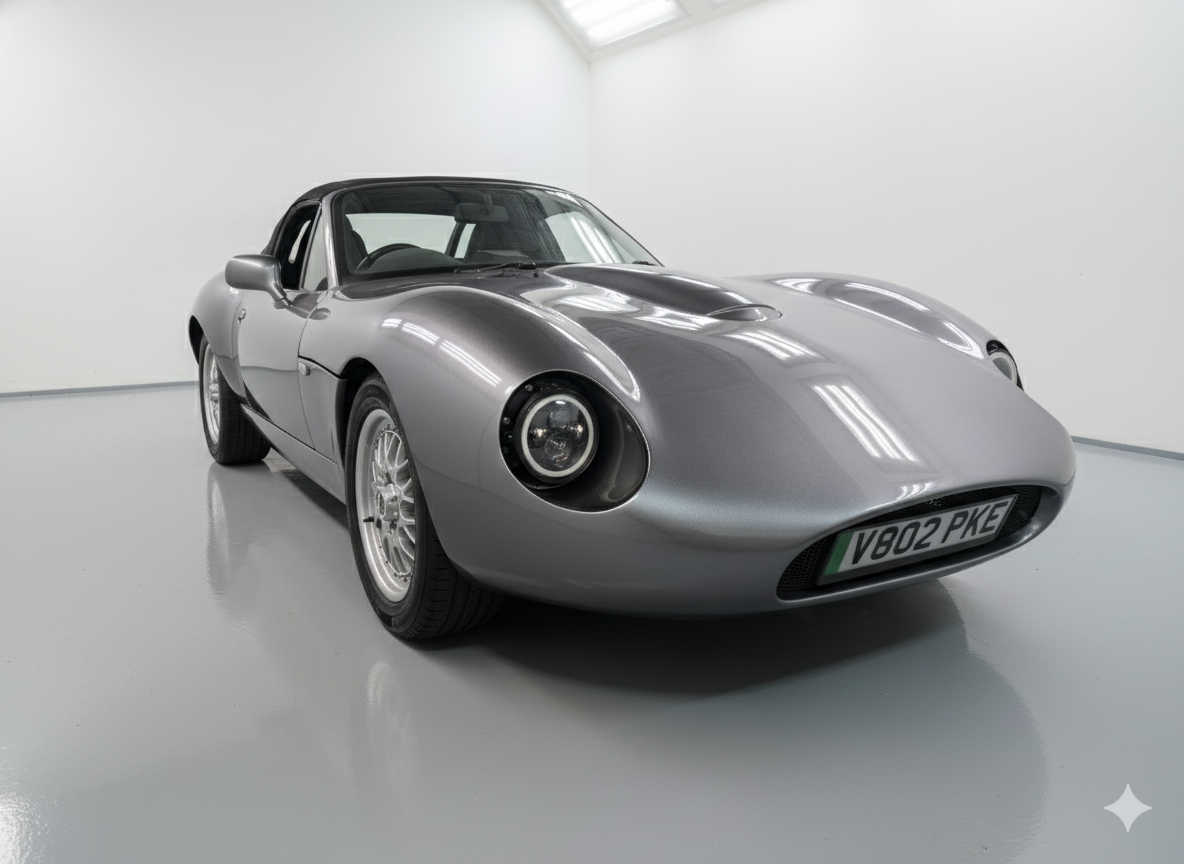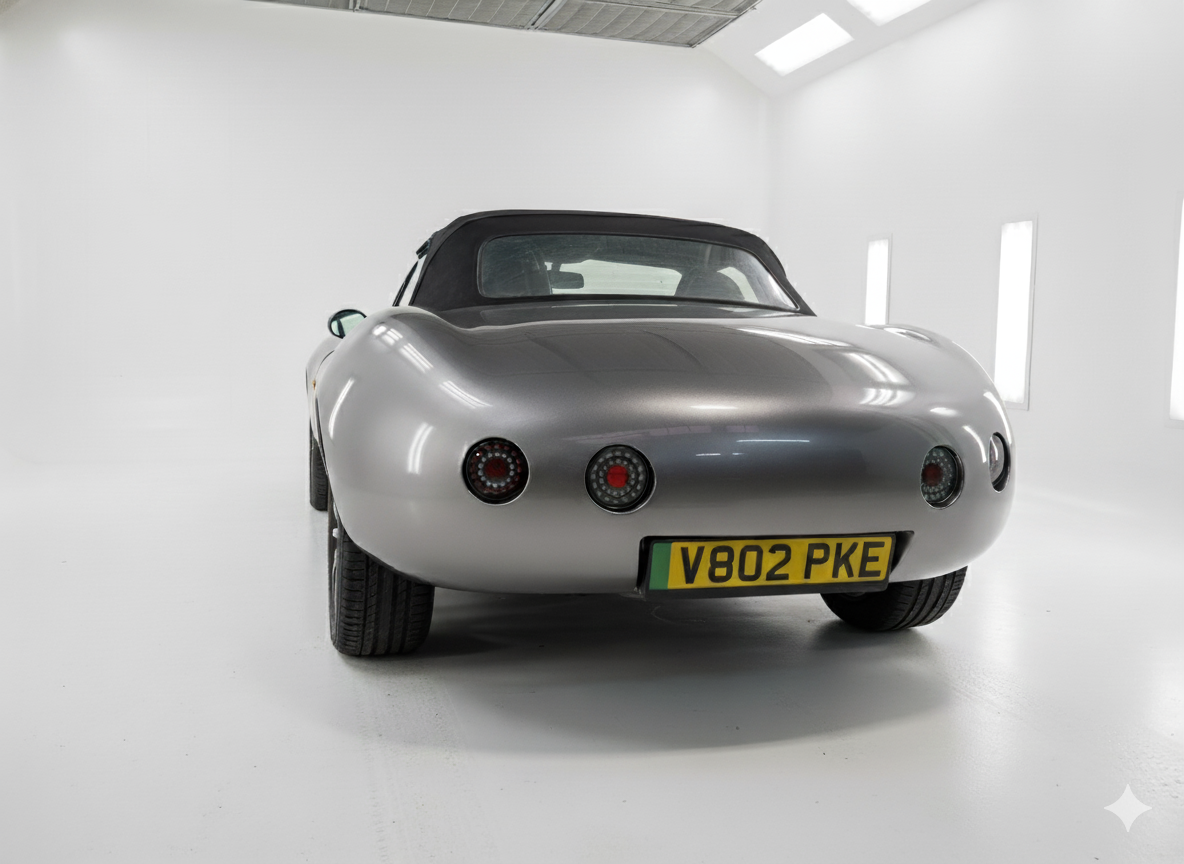Open-Top Electric Excellence
The Gostwyck Spyder represents the perfect fusion of classic British roadster styling with cutting-edge electric propulsion. Born from a passion project during the 2020 lockdown, this unique vehicle combines the timeless elegance of 1960s sports cars with modern electric performance and safety.
Built on a BMW Z3 chassis and clothed in a meticulously crafted fibreglass body, the Spyder offers an authentic vintage driving experience without the emissions. Every component has been carefully selected and integrated to create a truly unique electric roadster that turns heads wherever it goes.
This is more than just a conversion – it's a complete reimagining of what an electric sports car can be.


Specifications
Performance
- Range: ~120 miles
- Top Speed: 85 mph
- 0-60 mph: ~8 seconds
- Power: 50kW continuous
- Charging: Type 2 AC
Construction
- Base: BMW Z3 chassis
- Body: Tribute Automotive Z300S kit
- Weight: ~1,200kg
- Drivetrain: Rear-wheel drive
- Suspension: BMW Z3 (modified)
Key Components
Electric Motor
Source: Mitsubishi Outlander PHEV
Rear-mounted AC motor providing smooth, silent propulsion with instant torque delivery characteristic of electric vehicles.
Battery Pack
Source: BMW hybrid modules
Lithium-ion battery pack configured for optimal weight distribution and range. Positioned low in the chassis for excellent handling dynamics.
Inverter
Source: Toyota Prius
Controls the electric motor with precision, managed by open-source software for maximum flexibility and performance tuning.
Auxiliary Systems
Brake Booster: Audi electric pump
Power Steering: Vauxhall Zafira pump
Carefully selected components ensure all modern conveniences are retained in the classic package.
The Build Story
The Spyder project began in 2020 as a family lockdown project and evolved into a comprehensive 4-year build. Starting with an MOT-failed BMW Z3 purchased for £800, the car required extensive bodywork before the electric conversion could begin.
The transformation involved removing the entire ICE drivetrain and replacing it with a carefully orchestrated collection of electric components from various manufacturers. The result is a truly unique vehicle that combines the best of classic automotive design with modern electric propulsion.
